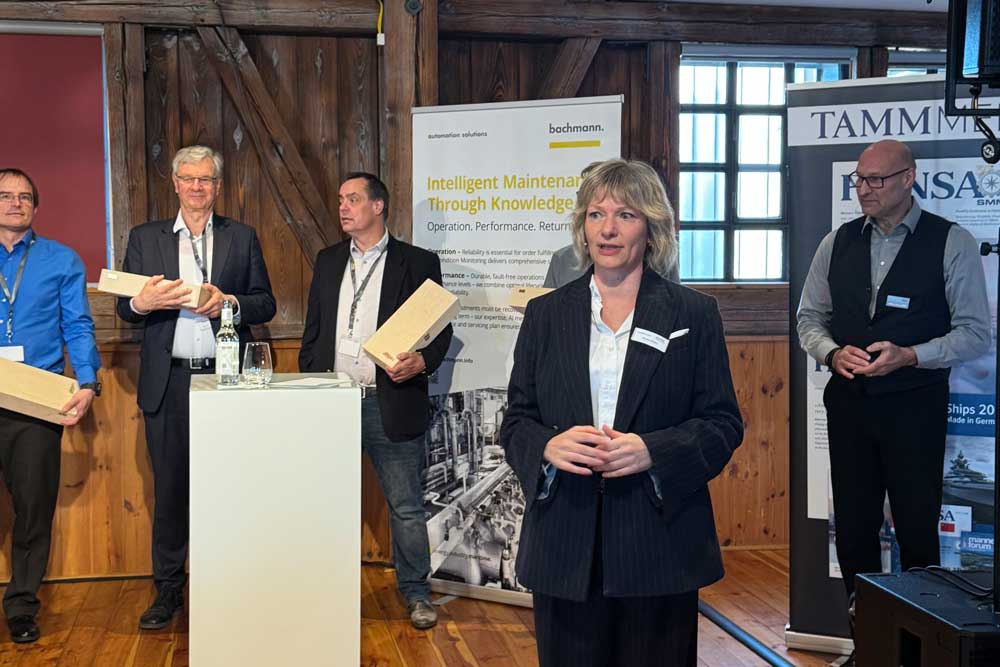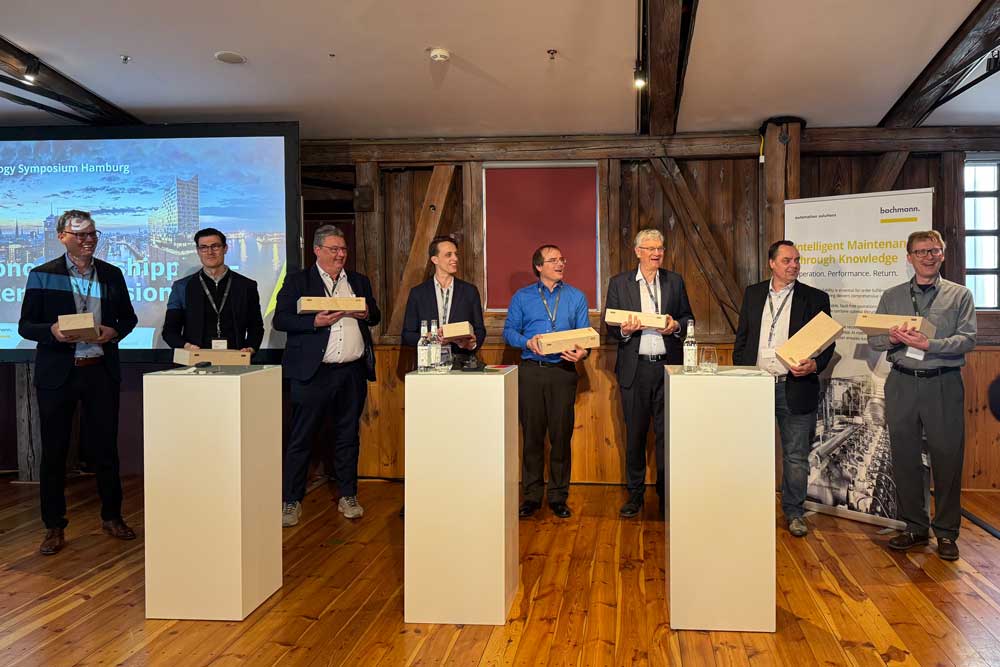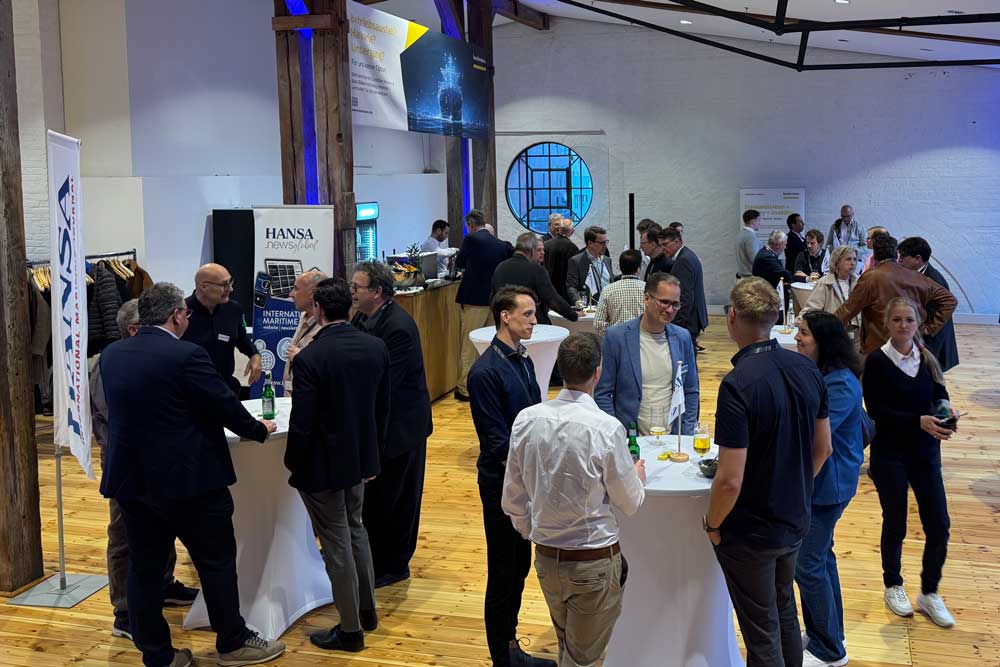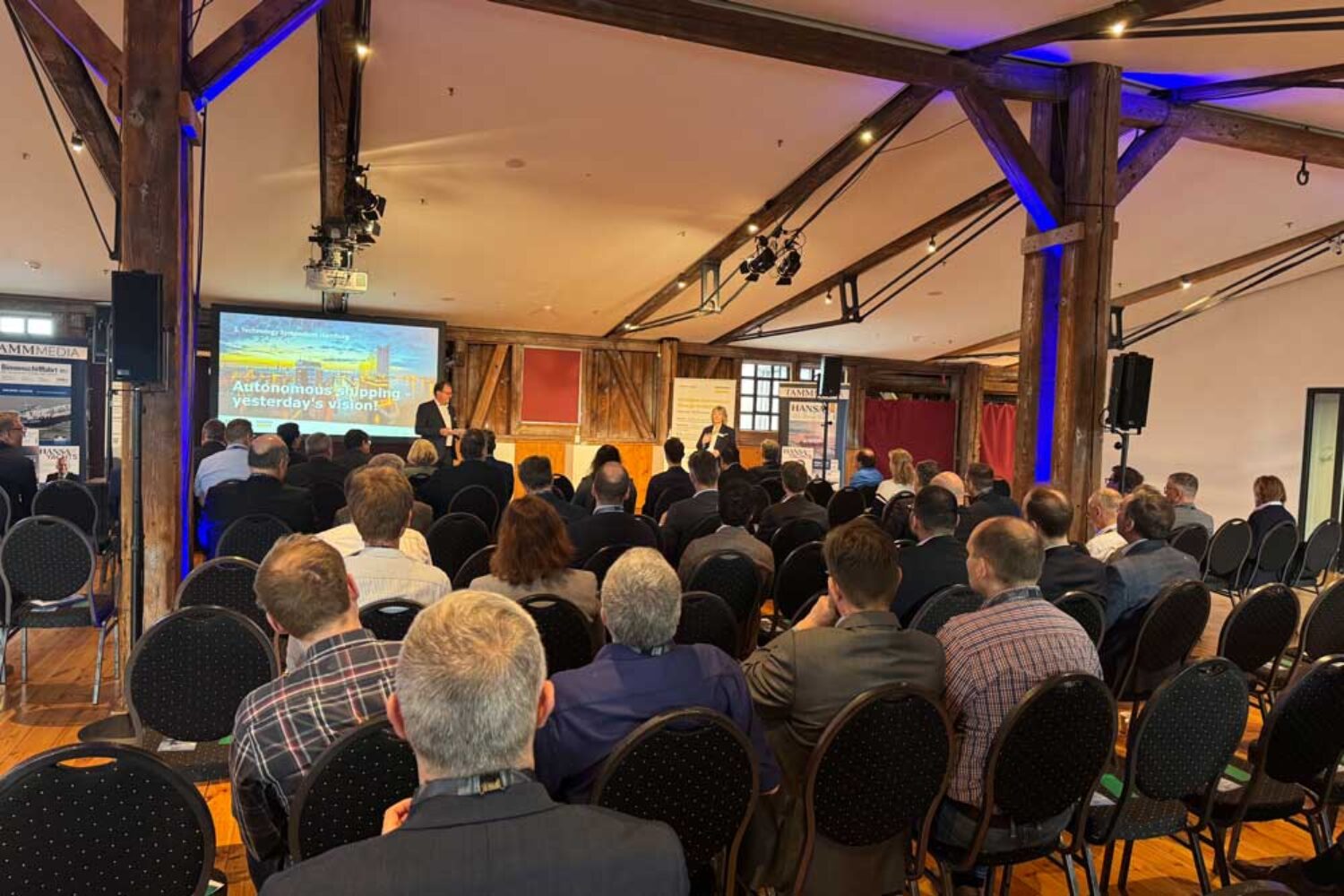For the third time, Bachmann and HANSA jointly hosted the Technology Symposium in Hamburg on April 10.
On deck 10 of the International Maritime Museum, many experts spoke about this year’s core topic: autonomous, sustainable and smart shipping.
After an opening of the program, which was moderated in English by HANSA expert Janne Silden, Dirk Jürgens from Voith Turbo Marine kicked things off. Under the motto “Simply stepping on the gas was yesterday”, he presented the appropriate propulsion technology for the increasing demand for autonomous ships.

This was followed by a presentation by navigation expert Alexander Lutz from Stuttgart-based company Argonics, who spoke about the automation of inland shipping and, above all, the challenges of this undertaking, which are not only related to the lack of space on German waterways. Among other things, he presented the “argoTrackPilot” in detail and showed how the assistance program is already helping skippers with navigation. In his presentation, Lutz also built a bridge to the possibilities of the future.
Concentrated expertise on deck 10
Katja Baumann from Mariko and Leo van der Burg from FME shed light on the extent to which autonomous shipping on waterways needs to be regulated. They presented the Interreg project Ferry Go!, which aims to promote the development of autonomous ferry traffic in the German-Dutch Wadden Sea. Irrespective of regulations, Jorn Bertens from Van Oord and Liam Williams from the Rotterdam Mainport Institute then used the example of “Autocaptain” to show what can be achieved within a short space of time in terms of autonomous navigation.

In the afternoon, the program continued with equally high-calibre speakers. Kjetil Nordby from Ocean Industries Concept Lab spoke about the need for rules when it comes to integrating research projects into real workflows. Claas Rostock, who was there on behalf of the classification society DNV, on the other hand, pointed out that there must be room for maneuver when it comes to new regulations – otherwise no progress can be made.
The last topic of the symposium was “Smart Maintenance”. Philipp Krenkel and Andreas Börgmann from Hydac spoke about innovative approaches to data collection and processing that lead to improved productivity and lower CO2 emissions. Holger Fritsch from Bachmann Monitoring then spoke about predictive maintenance, i.e. the use of AI and machine learning to plan maintenance in advance.
During the breaks and afterwards, the participants of the technology symposium had more than enough opportunities to network and exchange expert knowledge.














